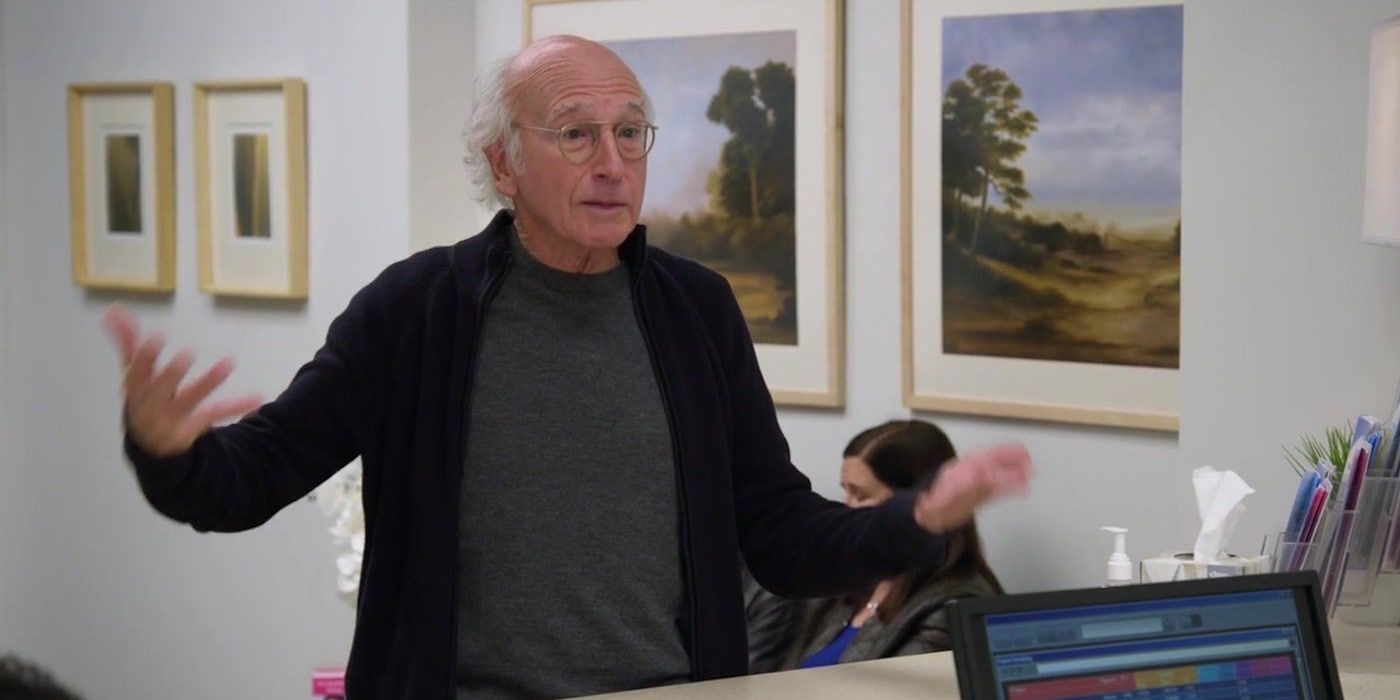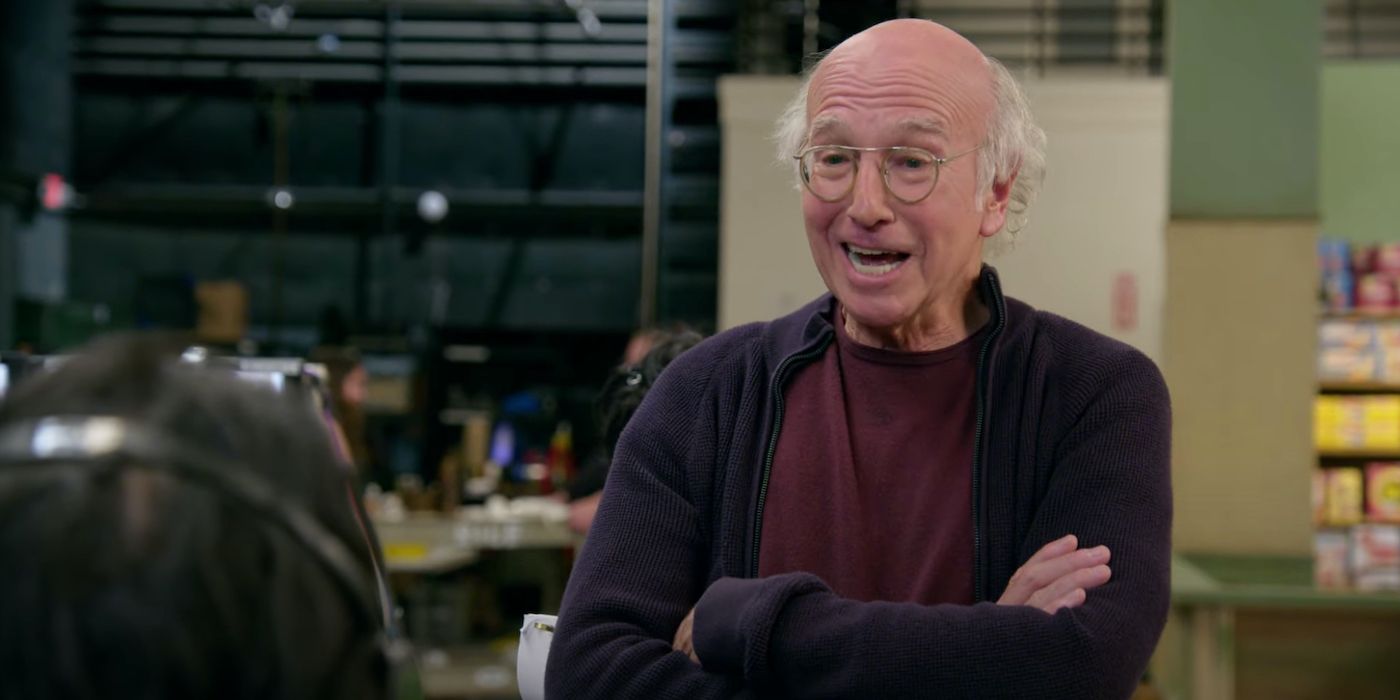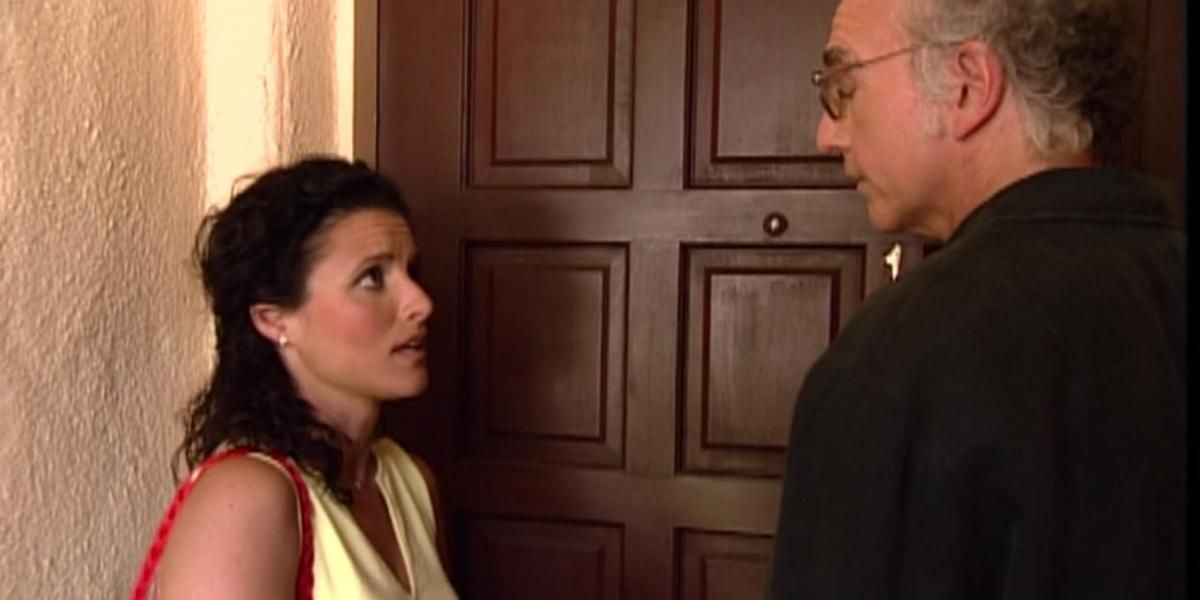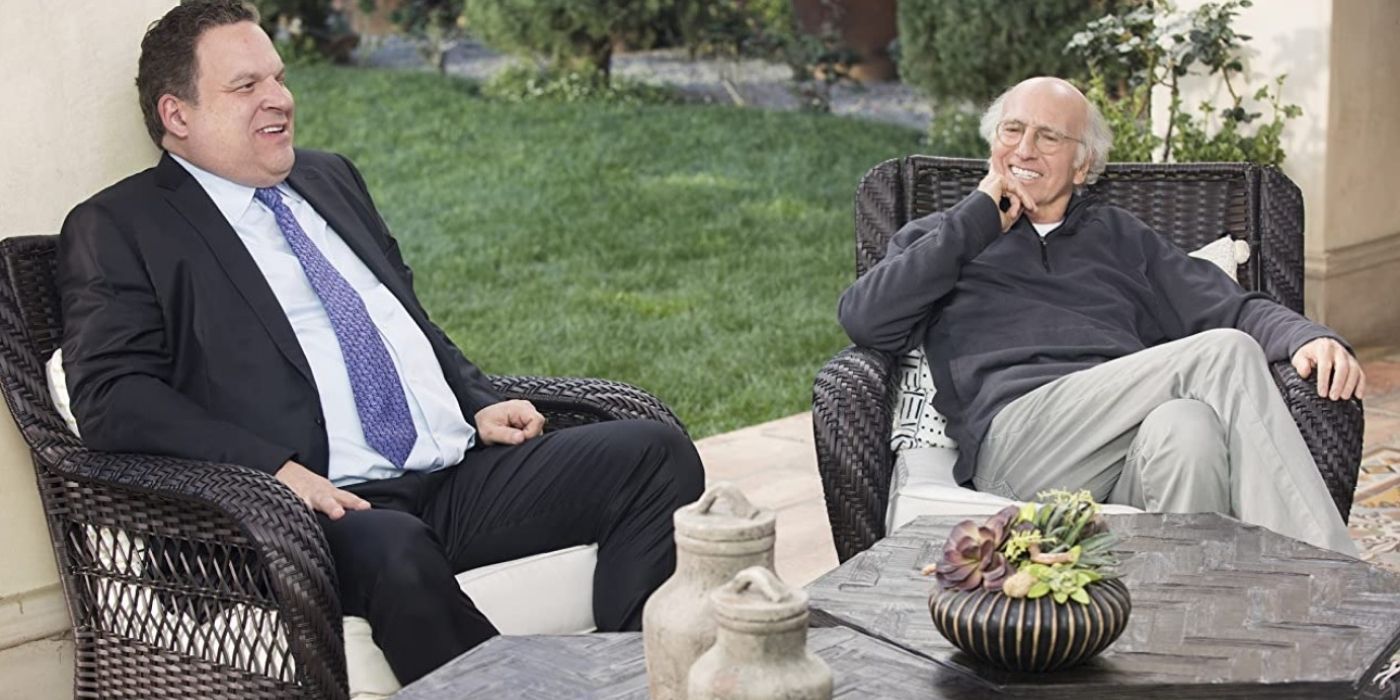Some people wonder "why"; Larry David wonders, "why me?" For the past four decades, Larry has transformed comedy with this mindset. Co-creator of the beloved 90 sitcom Seinfeld; on Curb Your Enthusiasm, the persnickety writer plays a meta version of himself. L.D. taps into the moral and ethical dilemmas which plague his 21st-century Hollywood Hills existence, most often to the effect of some cosmic comeuppance.
Through Curb, Larry delivers a satiric sermon on leading a principled life. His experiences are proportionately Biblical, or Pentateuchal, rather. With its myriad of down-to-earth life lessons, Larry David's programming is truly the Torah of television.
Keep Your Enthusiasm Curbed
Larry confirmed his reasoning for titling the series Curb Your Enthusiasm in a Time Magazine interview. The phrase "curb your enthusiasm" is a double entendre, referring to expectations of the comedian's work post-Seinfeld and a reminder that people should keep enthusiasm curbed in their everyday lives: "Always keep it. To not is unattractive. It's unseemly."
No one likes a showboat. Not only is it indecent to be publicly ecstatic, but it's also downright obnoxious. Act like you've been there before. Realize in public there are other people around. Of course, being happy is okay; just don't go overboard.
Know Yourself, and Be Yourself
Fans of Curb know that Lar's comfort-centric wardrobe has gone relatively unchanged during the series' 11-season run. He has looked this way since he gained notoriety for Seinfeld in the late 1980s. Same trademark glasses. Same sweaters and sneakers. Same Larry. Fashion trends have come and gone, yet Larry David's look remains effortlessly chic.
His philosophy on life remains stoic and self-preservational as ever. The overarching theme of Curb seems to emphasize knowing thyself. Don’t put yourself in situations that will make you miserable. Larry certainly doesn't, or he goes to great lengths to avoid doing so. Suffering and human interaction are unavoidable aspects of life, but you can avoid putting yourself in potentially awkward scenarios for the most part.
Half Is More
This Curbism goes hand-in-hand with keeping enthusiasm in check and being yourself. In a GQ Interview, L.D. opines that there should be a one-nice-thing-per-outfit limit. More than that is overkill. In his own words, "You have to be half-dressed. That's my fashion theory, since you asked: Half Is More."
It's easy to see where he's coming from here. Excessive glamorizing can ring false. Too much emphasis on nice things is socially isolating. Where to draw the line is situational, dependent upon personal preference. If you find yourself in a compromising situation, ask yourself: what would Larry David do?
Respect Wood
One of the best Curb celebrity cameos comes from former Seinfeld star Julia Louis Dreyfus (Season 7, Episode 10). Water rings ruin Dreyfus' wooden family heirloom. Larry is outraged on her behalf. One of his greatest virtues is his reverential attitude towards wooden furniture. He insists he always uses a coaster. He respects wood, not just for the people who own it, but for the sake of the wood itself.
Whenever Lar comes across these universal imbalances, he makes it his mission to achieve restorative justice. Respect for wood is something of a litmus test for inconsiderate attitudes. Using a coaster is an indicator of polite self-awareness. It means you can empathize with other people and recognize any consequences.
Don't Let People Take Advantage of You
It is common knowledge that Larry has become quite wealthy from writing seven seasons of Seinfeld. His syndicated earnings have afforded him an estimated net worth of $400 million. While that amount sounds fantastical to most people, Larry demonstrates the burden such fortune incurs. Friends expect him to always pick up the check. Other people solicit excessive payments simply because they can.
Lar is precautious in these matters. He worked hard to earn his money and is wary of individuals looking to take advantage. Even if you have less than L.D. in your savings account, it is wise to be suspicious of people's true intentions. Don't allow other people to take advantage of whatever you have to offer.
Don't Be a Schmohawk
Larry David defines a "schmohawk" as "every bad driver. " The origins are Yiddish; it is a slangy derivation of the word "schmo." He picked up this term during childhood when his father would insultingly call out bad drivers (Season 6, Episode 6.) While an enormously fun expression to use, a schmohawk is a terrible thing to be.
Driving requires a certain etiquette— being friendly and courteous to the other drivers on the road while following traffic laws. Bad driving is a hazard and can be damaging in more ways than one. Whenever someone almost ruins your car or day with their lousy driving, call them a schmohawk and let it go.
Get Out Of The House
It might seem like the major perk of being a TV writer would be a work-from-home schedule. Larry shows us that's not his style in the show and in real life: he approaches the world ready to work. Perhaps that is part of his recipe for success.
This advice, articulated in an interview with Ricky Gervais, comes from Larry's mother. She is quoted as saying, "You have to get out of the house and have a place to go every day." Having a place to go every day, wherever it is, instills a healthy sense of purpose. No matter how frustrating people are, life wouldn't be nearly as absurd and hilarious without them.
Don't Be Too Trusting
This rule makes sense to a man like Larry David, who feels he has been exceptionally screwed over. Human beings have a track record of being liars and deceivers. Especially L.D. He is painfully aware of every truth's other half, probably because he's used the same line before. Such an attitude begets skepticism. Potential ulterior motives cast suspicion upon even the most innocent acts.
What people say isn't always the truth and should not be treated as such. If the veracity of any individual should come into question for whatever reason, don't be afraid to give them the ol' squinty-eyed stare down.
Don't Be Too Truthful
German philosopher Immanuel Kant posits his philosophical beliefs on universal maxims — what would the world look like if everybody did this? From here, Kant decides that lying is never morally excusable. Larry David, thinking the same way, came to the opposite conclusion. Everybody does lie, and thus white lies are effectively permissible in our semi-ethical society.
No one is forthright all the time. To do so would create an impossible standard. It is doubtful that such a brutally honest person would be well-liked. Larry doesn't always lie, but the truth does not bind him. He employs a selective honesty that best serves his needs. On many occasions, this includes bending the truth for close friends. Lies, when utilized respectfully, serve an important purpose in society. Be warned: these seemingly innocent fibs are a major way Larry gets himself into trouble in many essential Curb Your Enthusiasm episodes.
Never Wait For Seconds
Akin to Larry David's golden rule, this Enthusiamandment roughly boils down to: "treat others how I demand to be treated." Such wisdom comes from a moment in Season 9, Episode 8. The line at a breakfast buffet rebukes a man for cutting to get seconds. Larry steps in to defend him, pointing out that this man already did his waiting.
L.D. has this lofty sense of justice and luckily for us, the agency to assert his radical views. Correcting whatever imbalance he encounters, he is the change he expects to see in the world. Moreover, this act is a perfect example of how helping a stranger can have unexpected benefits. Wouldn't the world be a better place if viewers acted the same way?











